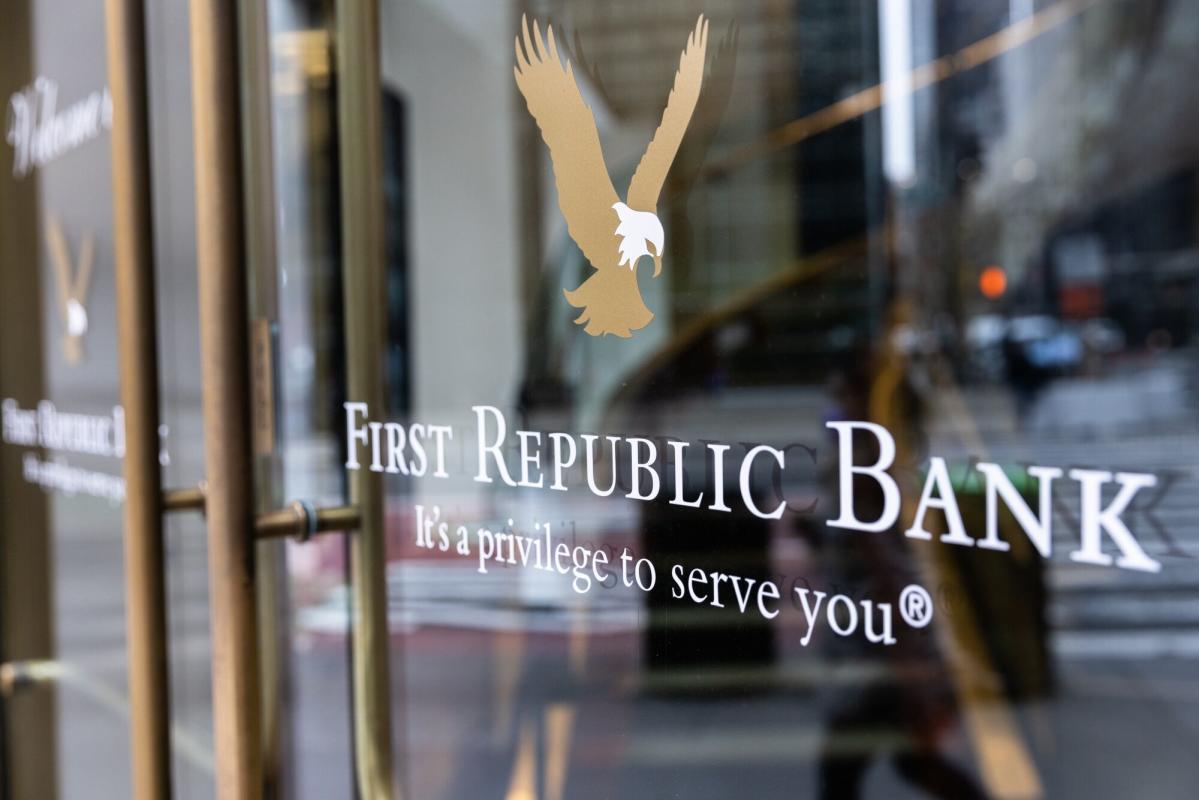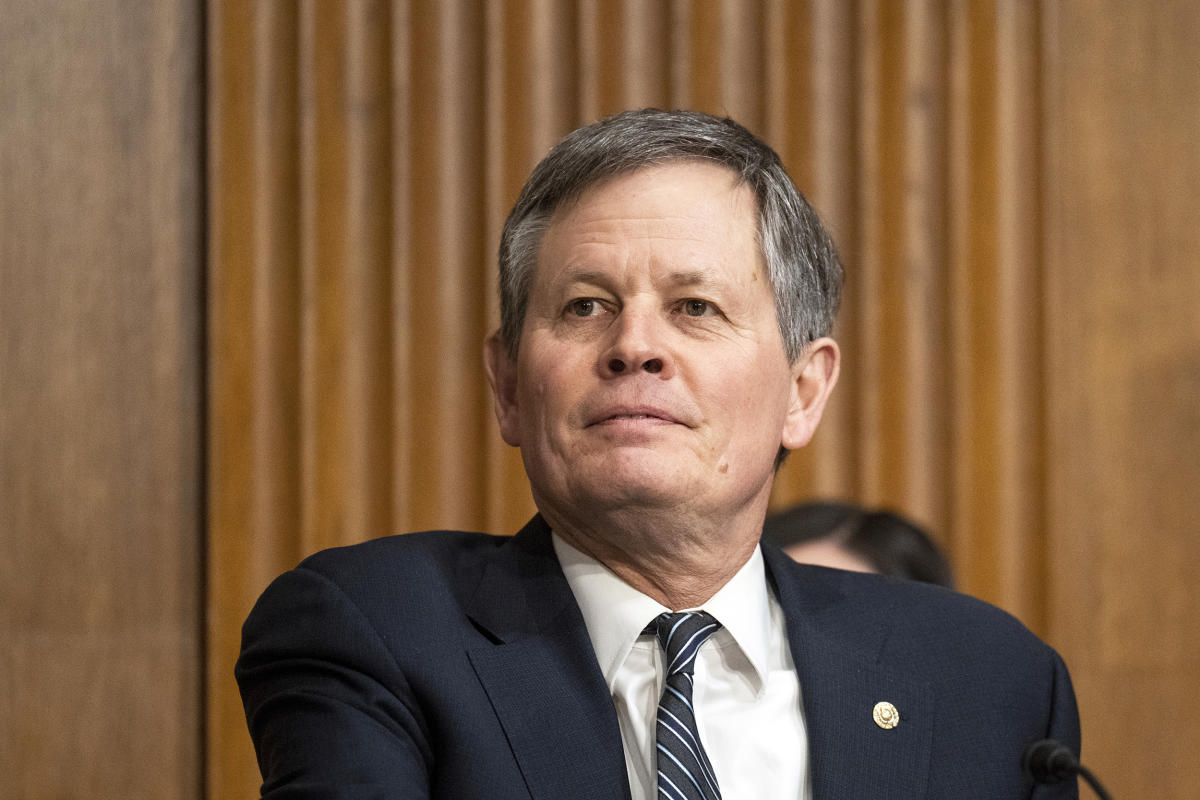(Bloomberg) — First Republic Bank’s quarterly results — including a worse-than-expected drop in deposits — reignited investor concerns about prospects for its business, breaking with more than a week of industry earnings reports that had broadly reassured the market.
Most Read from Bloomberg
The company’s stock plunged in late trading.
Executives at the San Francisco-based lender laid out plans Monday for shoring up the firm after its first-quarter results showed customer deposits plunged 41% to $104.5 billion in the period. That missed the $137 billion average of analyst estimates compiled by Bloomberg and came even after the country’s largest lenders parked $30 billion of their own cash there.
The figures underscored that First Republic is still contending with the impact of last month’s regional-banking crisis, in which wealthy customers and businesses yanked their money from small- and midsize lenders over worries that rising interest rates were eroding the value of their assets. First Republic said it will cut as much as 25% of its workforce, lower outstanding loan balances and curb other non-essential activities.
Yet analysts expressed concern that deposit flight has left the firm worse off than rivals, with higher funding costs squeezing its ability to generate profits on loans.
“First Republic is an idiosyncratic situation in terms of the magnitude of the stress that it’s under,” said David Chiaverini, an analyst with Wedbush Securities Inc. He predicts the firm will face operating losses over the next couple of years.
The stock dropped 22% in late trading in New York as of 8 p.m., erasing the ground it had gained this month. That spurred a decline in shares of some other US regional lenders, including PacWest Bancorp, which is scheduled to report earnings Tuesday.
“Though we faced challenges and uncertainties with the stabilization of our deposit base and the strength of our credit quality and capital position, we continue to take steps to strengthen our business,” Chief Executive Officer Mike Roffler said on a conference call.
In an unusual step, executives didn’t take questions, concluding the briefing in well under 15 minutes.
First Republic’s earnings report marked its first detailed update since investors retreated in mid-March from a swath of regional lenders. In recent weeks, rivals including KeyCorp, East West Bancorp and Bank OZK all reported quarterly deposit figures that met or topped analyst estimates.
Behind the scenes, deposit outflows at First Republic slowed in recent weeks, slipping just 1.7% this month through last Friday, the bank said Monday.
Strategic Options
Last month’s turmoil had escalated with the collapse of SVB Financial Group’s Silicon Valley Bank, which fell into government receivership after asset sales spooked depositors in the venture capital community. The move put a spotlight on banks sitting on large piles deposits that exceeded insurance limits, as well as billions in unrealized losses on their balance sheets.
First Republic ended last year with almost $27 billion in markdowns on loans and a bevy of unrealized losses on Treasuries and other long-dated bonds on the company’s balance sheet. That was far greater than the roughly $13 billion in tangible common equity it had at the time.
Executives confirmed on Monday that the firm is seeking strategic options. Bloomberg News previously reported that they have considered a sale of the entire bank. But its sizable unrealized losses — which would have to be crystallized in most deals — have caused some buyers to balk at the prospect, people with knowledge of the matter have said.
Founded in 1985, First Republic has spent years expanding its wealth-management services and other offerings for the ultra-rich, such as interest-only mortgages that allow them keep investing their money for years before paying down the principal. While those borrowers have proved reliable, Federal Reserve rate hikes lower the value of such low-interest loans.
The bank’s revenue slumped 13% in the quarter, hurt by a 19% drop in net interest income. Net income, which slumped 33% to $269 million, still beat the $171 million average of analysts’ estimates, helped by lower-than-expected operating costs.
The company saw total wealth-management assets climb 6.7% to $289.5 billion at the end of last year. Fees tied to the business also jumped.
But in recent weeks, the firm has seen a bevy of advisers leave for rivals. Assets tied to those teams represented less than 20% of the firm’s total, and the company anticipates retaining a portion of those funds despite the departures, Roffler said on a conference call with analysts.
The company has retained 90% of its wealth professionals and remains “fully committed” to the business, Roffler added.
In the future, uninsured deposits will represent a smaller portion of the total, the company said. First Republic also plans to moderate loan volumes and will now focus on originating loans that can be sold on the secondary market.
“We intend to retain servicing on these loans as we always have so that we remain the primary point of contact for our clients,” Roffler said on the call. “Through these actions we intend to reduce the size of our balance sheet, reduce our reliance on short-term borrowings and address the challenges we continue to face.”
Most Read from Bloomberg Businessweek
©2023 Bloomberg L.P.







